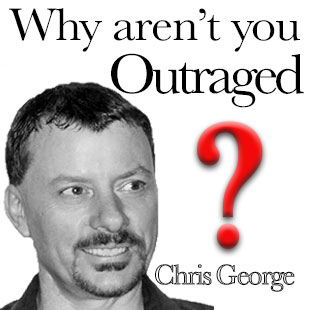
(CHRIS GEORGE / iNFOnews.ca)
November 20, 2018 - 12:05 PM
OPINION
When I was in my mid-20s I had the good fortune to take the Dale Carnegie course "How to Win Friends and Influence People".
The course consisted of weekly public speaking training and reading assignments from Dale Carnegie's books for homework. The first principle of the twelve taught in these readings is "Don’t criticize, condemn, or complain."
This century old the advice resonated with me then and has had a profoundly positive impact on how I have learned to get along with people both personally and professionally.
Where it has been a struggle for me is in my political life.
Implementing this first principle was not a piece of cake. It required practice. It still requires forethought. And it is very difficult to stop and think before opening my mouth. The rewards are evident and immediate.
When I stop criticizing someone, complaining about their behaviour, and/or condemning them for it they suddenly become a lot more likely to enjoy my company. And it is amazing how much negative thinking and wasted communication just stopping to think cuts out of my life. It is easy to mistake this process as simple reticence or even shyness.
When writing or speaking about politics though, the difficulty level goes up. I have learned that complaining doesn't go far, so I try hard not to do it. All a complaint really is after all, is a problem that I have noticed that doesn't have a solution handy. Spend some time with the problem and come up with a handful of solutions and suddenly it isn't a complaint anymore. It is an opportunity for improvement.
Condemnation is a non-starter with me as well. Condemnation manifests as an attack on the person who is presenting their ideas instead of having the respect for the person and the common decency to engage with the ideas on their own.
Bringing in personal insults or assigning motives to the person's argument simply means that I am too lazy to do the required research or to communicate that research to either support or refute the ideas in question. Or that there is no research that supports my side of the conversation argument in the first place.
The killer for me has been to stop myself from criticizing people for their ideology, their party's hypocrisy, and the sheer idiocy of some of what goes on with our government when their party happens to be in power.
Surely, I thought, people would see just how wrong they were if only I brought facts and solid research into the discussion. And surely they must deserve my criticism if they willingly chose to not give those facts or that solid research any weight in their thinking.
So it is hard to stop criticizing.
Today I had the good fortune to stumble across an interview with Gabor Mate, a Canadian specialist in the psychology of trauma and addictions. In it, he posits that ideologies can be the object of addiction just as drugs, sex, food, or any other behaviour that we obsessively return to our detriment can be. It becomes an instrument to connect us to a group to foster a feeling of belonging and help us with the traumas of our lives.
This has changed my point of view when it comes to holding people to account for their denial of evidence when it comes to their political positions and their support for their ideology. Not only is there a host of other psychological reasons why we won't allow the facts to ever get in the way of a really good opinion, now there is a reason that demands a totally different set of tools if ever I am to hope to get through to the person. Criticism isn't going to cut it.
Just as some people will turn to drugs or sex or food to deal with trauma, some will dive into a religion or an ideology to deal with their own. Bludgeoning them with facts won't work, as any parent of a drug-addicted child will tell you.
Getting through to people like this is going to take compassion and understanding. It is going to take time. It is going to take constant engagement and gentle handling.
Is this a manipulative stance to take? No more, I think, than using criticism, condemnation, and complaining to move people which is outright bullying.
I am hopeful that today's insight into how I interact with the world will help me in my future interactions. It is going to become more and more important that we find a way to work together in our communities as the challenges of dealing with our simultaneous ecological, social, and economic implosions mount.
— Chris George believes one measure of a just society is found in how well it balances fiscally conservative economics with social responsibility and environmental soundness in all of its living arrangements.
We welcome your comments and opinions on our stories but play nice. We won't censor or delete comments unless they contain off-topic statements or links, unnecessary vulgarity, false facts, spam or obviously fake profiles. If you have any concerns about what you see in comments, email the editor.
News from © iNFOnews, 2018